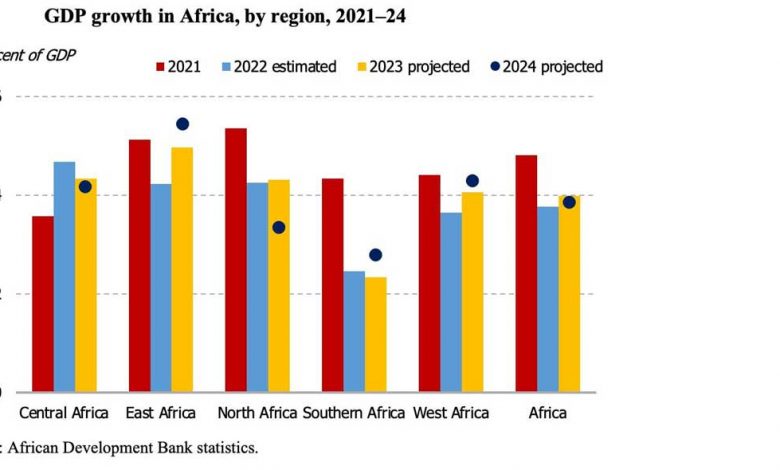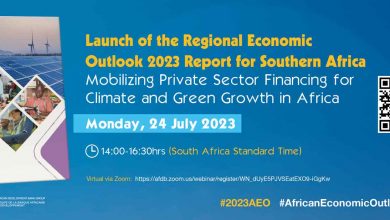Africa’s average GDP growth to stabilize in 2023-2020 despite recent headwinds — New African Development Bank report | African Development Bank

Diplomat.Today
The African Development Bank
2023-03-01 00:00:00
——————————————-
African economies remain resilient with a stable outlook in 2023-2024 despite tightening global financial conditions, the African Development Bank predicts in a new report.
The report, Africas Macroeconomic Performance and Outlook (MEO) 2023, estimates that Africa’s average GDP will stabilize at 4% over the next two years, compared to 3.8% in 2022.
Presenting the report on Feb. 17 on the sidelines of the 36th Assembly of the African Union in Addis Ababa, Kevin Urama, chief economist and vice president of the African Development Bank, said the continent could benefit from high demand for its raw materials as countries look for alternatives to food and energy in response to disruptions caused by the war in Ukraine.
The continent, he noted, remains a global treasure trove for savvy investors, but it must aim for higher growth rates, more inclusive economies and greater resilience to external shocks.
“The expected stable outlook for 2023-2024 reflects continued policy support in Africa, global efforts to cushion the impact of external shocks and growing uncertainty in the global economy,” he said.
The new publication, released in the first and third quarters of each year, will provide African policymakers, global and domestic investors, researchers and other development partners with an up-to-date, evidence-based assessment of the continent’s recent macroeconomic performance and brief medium-term outlook amid dynamic global economic developments.
Urama urged bold policy action. “To close the significant funding gap in Africa, it is imperative to establish policies that can mobilize and leverage private finance for development in Africa,” he said.
The adverse global environment has led to rising inflation, higher levels of debt and a greater risk of debt burden in developing countries, including Africa.
“As in many emerging market economies, tighter financial conditions and the rising US dollar have had a serious impact on most African economies,” said Urama. It has also become difficult for African countries to access international capital markets for new financing, he added.
Most African currencies, especially in commodity-exporting countries, lost significant value against the dollar in 2022 due to a tightening of monetary policy in the United States. Depreciation rates ranged from 21% in Malawi to 69% in South Sudan.
Urama warned that currency weakness in Africa’s more globally integrated economies, such as Algeria, Kenya, Nigeria and South Africa, could persist into 2023.
“The main causes of the currency’s depreciation include tightening global financial conditions and weak foreign demand, macroeconomic imbalances, constrained income and investment flows, and the political risk aversion associated with countries’ election cycles,” said Urama. .
He said African countries’ fiscal positions are already under pressure from policy responses to Covid-19 and support for vulnerable populations against rising food and energy prices amid high debt and the impacts of climate change.
Other economic headwinds include the spillover effects of rising geopolitical tensions, most notably the Russian invasion of Ukraine. These circumstances put price stability beyond the reach of most central banks.
——————————————-



